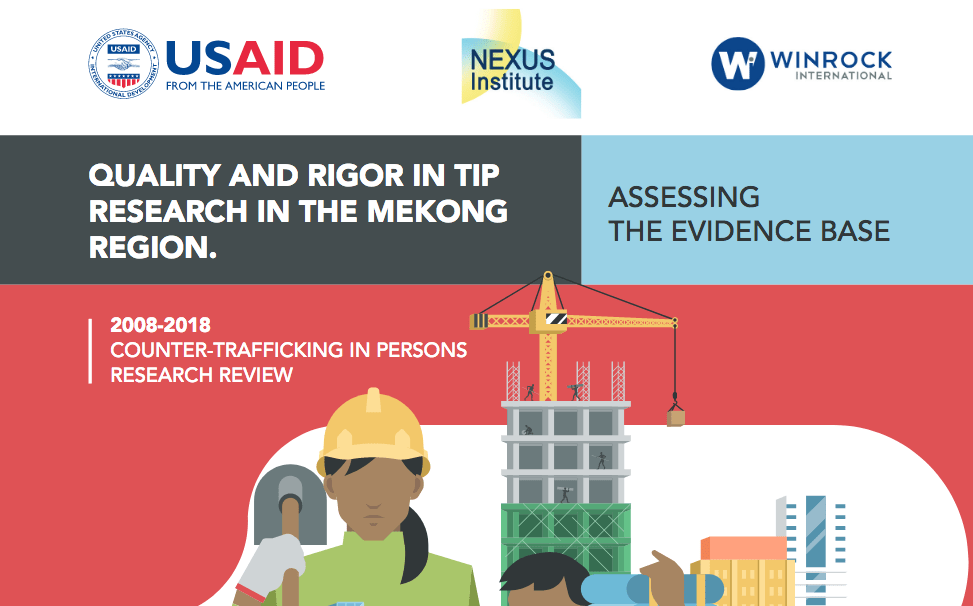
Quality And Rigor In Tip Research In The Mekong Region
There is increasing recognition in the counter-trafficking in persons (CTIP) community that our knowledge of trafficking in persons (TIP) must be informed and driven by robust evidence.2 Effective programming and policy making requires combining scientific evidence (that is, TIP research) with other forms of evidence including CTIP program data (that is, M&E data, assessments, evaluations, case management data, baseline surveys and so on), all of which must be rigorous and of high quality. It is only with technically robust and ethical evidence that we can build our body of knowledge and understanding of TIP and effective CTIP interventions. Weak or inaccurate research and evidence, including sensationalistic and emotionally-charged representations and narratives, have the potential to distort our understanding of TIP and our ability to effectively design and implement CTIP interventions. This research review explores the nature and quality of TIP research and evidence in five of the countries of the Mekong region (Cambodia, Lao PDR, Myanmar, Thailand and Viet Nam) and makes recommendations for how to improve future TIP research and data collection and, by extension, the evidence base for CTIP programming and policy.3 This review is intended to inform the USAID Asia CTIP project and the wider CTIP community in the Mekong region and beyond.
Click here to read the full report.
